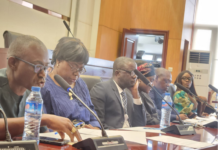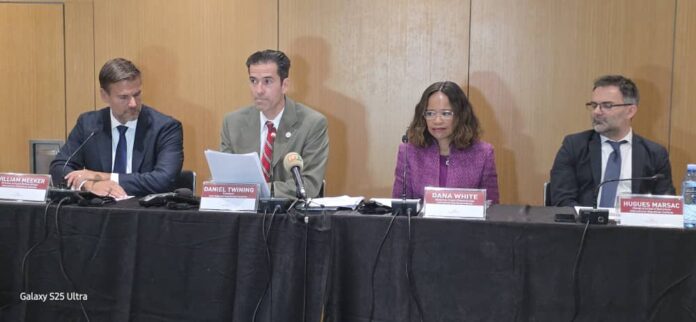With less than a month remaining before Côte d’Ivoire’s presidential election on October 25, international monitors have issued a stark warning about the credibility of the electoral process, citing multiple systemic and procedural shortcomings.
A delegation from the International Republican Institute (IRI), led by President Dr. Daniel Twining and Board Member Dana White, conducted a pre-election assessment mission in Abidjan from September 22 to 26. Following consultations with more than 70 stakeholders—including electoral officials, political party representatives, and civil society leaders—the group released a report outlining five key areas of concern.
Restricted Political Competition
The IRI highlighted the exclusion of several prominent opposition candidates from parties such as the PDCI-RDA, PPA-CI, and FPI. Disqualifications were attributed to issues including nationality status, insufficient sponsorships, and prior convictions. The absence of an appeals mechanism for decisions made by the Constitutional Council was flagged as a major limitation on voter choice and a potential source of political bias.
Voter Disenfranchisement
Despite the registration of over 715,000 new voters, the total number of registered voters remains significantly below the estimated eligible population. The closure of voter registration in November 2024 has left many newly eligible citizens unable to participate. Structural barriers, such as lack of identity documentation, were also cited as contributing factors to voter apathy.
Opaque Sponsorship Verification
The candidate sponsorship process lacks transparency and is not subject to independent audit, raising concerns about potential manipulation. The IRI reported allegations of harassment and intimidation, including arrests and alleged kidnappings of opposition supporters, which have contributed to a climate of fear.
Absence of a Public Electoral Calendar
The lack of a publicly available and detailed electoral timeline is impeding transparency and public oversight. Observers noted that this deficiency undermines accountability and limits civic engagement.
Fragile Information Environment
The report warned of growing misinformation and the spread of AI-generated content on social media, exacerbated by low digital literacy and suspected foreign influence from actors such as the Alliance of Sahel States (AES) and Russia-linked networks. Côte d’Ivoire’s declining ranking in the global press freedom index and reported threats against journalists were also highlighted.
Historical Context and Political Tensions
The IRI contextualized its concerns within Côte d’Ivoire’s history of electoral violence, referencing flashpoints in 2000, 2010, and 2020. Recent mass protests in August and September 2025—sparked by President Alassane Ouattara’s controversial bid for a fourth term and the exclusion of opposition candidates—have further heightened tensions.
Recommendations
The IRI called for both immediate and long-term reforms to safeguard the integrity of the upcoming election. Key recommendations include enhancing voter education and ensuring timely distribution of voter cards, establishing mechanisms for reporting and investigating electoral violations, releasing detained opposition members and supporters not formally charged, and combating misinformation and strengthening press protections, amongst others.
As the election approaches, regional and international observers are expected to closely monitor developments for signs of stability, transparency, and democratic resilience.























